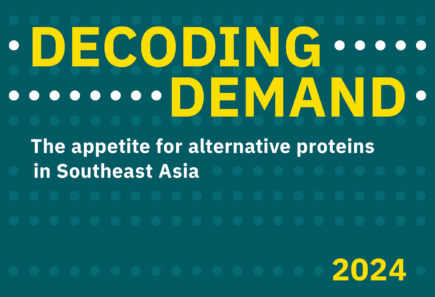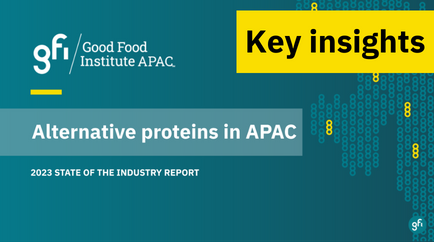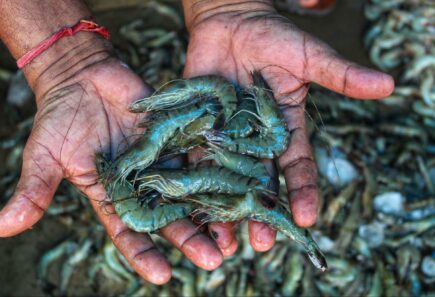
News
Alternative proteins are a scalable solution to many of the world’s most pressing challenges and the Good Food Institute APAC is driving the global media conversation about where the sector needs to go next.
Check out our latest blogs, press statements, and global news coverage to stay up-to-date. If you are a journalist, visit our Contact page to connect with our press liaisons and explore our free library of media-approved images.
Sort By

Plant-based meat’s success in Asia boils down to cost and outreach
In a recent study released by GFI APAC, “consumers were unequivocal that what they are truly craving is protein diversity, not wholesale replacement,” says Senior Communications Manager Ryan Huling. “That’s an audience worth speaking more directly to.”

New data reveals surprising market opportunities for plant-based meat in Southeast Asia
This report examines current and projected rates of plant-based meat adoption, health motivations, high- and low-interest consumer segments, and sentiments on new categories like blended meat. With this roadmap in hand, industry stakeholders can more strategically satisfy consumer demand and capitalise on Southeast Asia’s position as a global protein producer.

Scaling slaughter-free meat is hard. Here’s one way to make it easier.
GFI APAC Managing Director Mirte Gosker spoke about how Singapore is scaling up cultivated meat production through international collaborations, and GFI Israel VP of Strategy and Policy Alla Voldman-Rantzer noted, “A platform that is funded by the government is probably the only way that one could put companies, industry partners, and academic groups together to work on collaborative R&D budgets.”

The State of APAC’s Alt Protein Industry in 10 Charts
Everything you need to know about the alternative protein ecosystem in APAC.

More local plant-based protein firms export to Europe, US
Consumers in Europe have “made clear” through demand and sales that they want the plant-based foods category to succeed, said Ms Mirte Gosker, Managing Director of alternative protein think-tank Good Food Institute Asia Pacific.

Islamic scholars rule on how to make lab-grown meat halal
GFI APAC Managing Director Mirte Gosker was featured in an article discussing the recent conclusions drawn by Sharia law scholars in Saudi Arabia on halal certification requirements for cultivated meat products. Excerpt: “This week’s ruling provides much-needed insight on what an approval roadmap might look like, and we expect that startups will immediately begin adapting their production processes to satisfy this new guidance.”

Asia will not get to net-zero without changing its diet
ARE determined that decarbonizing Asia’s protein system will require peaking industrial animal production no later than 2030, while simultaneously ramping up development of alternative proteins like meat, dairy and eggs made from plants, microbes and cultivated animal cells.

Southeast Asia turns to alternative meats as fight against climate change ramps up
“If nations prioritize the manufacturing and development of alternative proteins, the climate payoff could be colossal.” – GFI APAC Managing Director Mirte Gosker

Mylk or milk? APAC plant-based dairy sector sees ‘no confusion’ amongst consumers regarding naming conventions
“[Label censorship] has not been a programmatic priority for GFI APAC, as Asian consumers already have deeper familiarity with plant-based milks and the many health benefits they offer.” – GFI APAC Managing Director Mirte Gosker

Guest Column: Keeping Up with the Crustaceans
This article was written by Dr. Danai Georgiadou, a scientist from A*STAR’s Bioprocessing Technology Institute (BTI). She also contributes to CRISP Meats, a multi-institutional research programme led by A*STAR to address challenges faced by the industry, and accelerate the development and production of cultivated meat and seafood through public-private partnerships.
